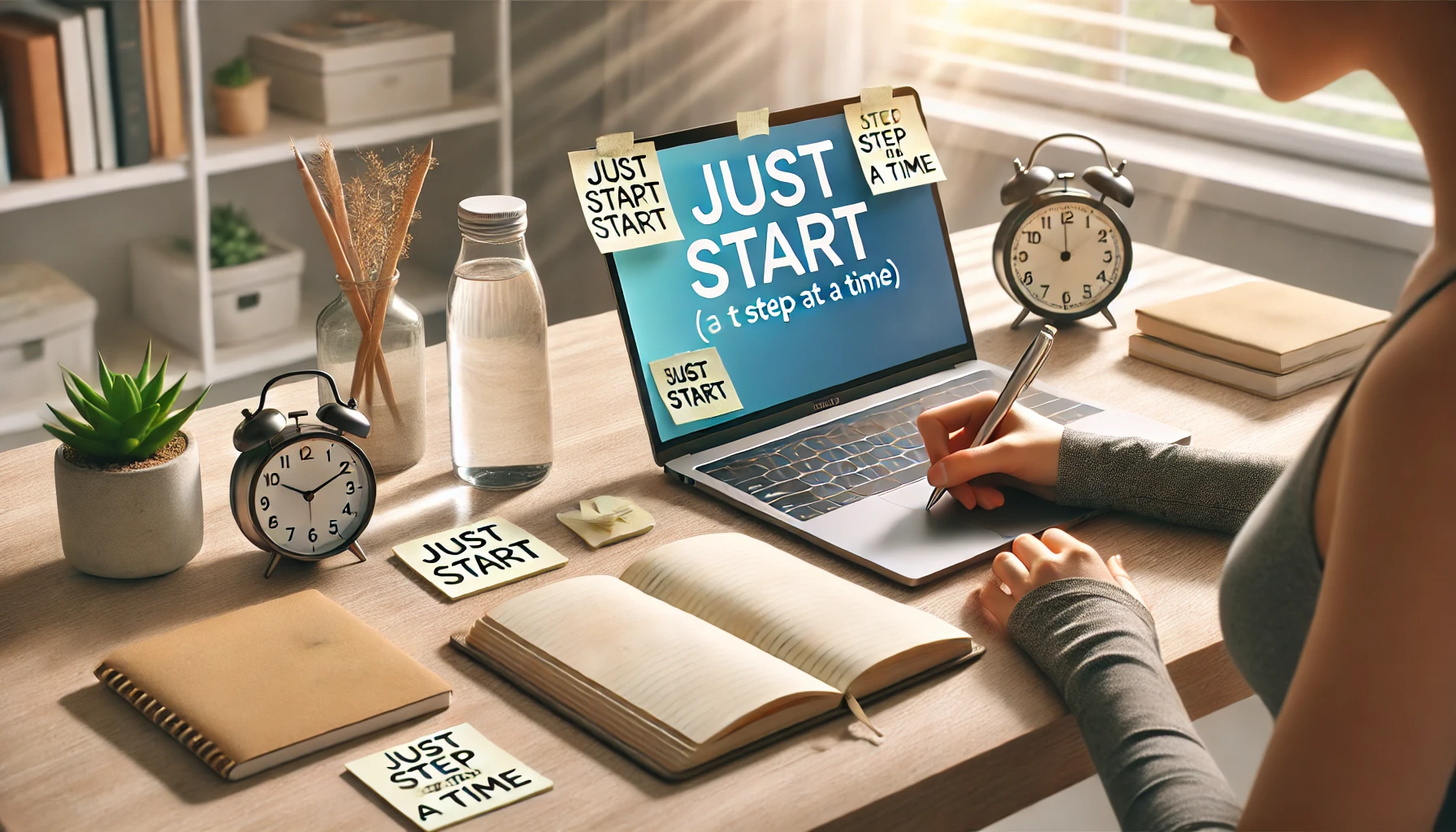You’ve got ideas.
You’ve got goals.
You’ve got plenty of things you want to do…
But instead of starting, you scroll. You clean. You “plan.” You stress.
You tell yourself you’ll start later. Tomorrow. Next week.
Sound familiar?
Here’s the truth: procrastination isn’t about laziness — it’s about avoidance, fear, and friction.
The good news? You can beat it.
In this article, you’ll learn science-backed strategies to stop procrastinating and finally take action — even when you really don’t feel like it.
1. Figure Out What You’re Actually Avoiding
Procrastination is usually a symptom, not the problem.
Ask yourself:
- Am I afraid of doing it wrong?
- Am I overwhelmed and don’t know where to start?
- Am I bored or disconnected from why it matters?
Understanding the root helps you choose the right strategy to move forward.
✅ Tip: Label the feeling — not just the delay. Is it fear? Confusion? Perfectionism?
2. Make the First Step Tiny
We often procrastinate because the task feels too big or too vague.
Solution? Shrink it.
Instead of:
- “Write the report” → Try: “Write the first sentence”
- “Clean the kitchen” → Try: “Put away one dish”
- “Launch the project” → Try: “Open the doc and write the title”
Momentum beats motivation. Once you start, your brain shifts into action mode.
3. Use the 5-Minute Rule
Tell yourself:
“I only have to do this for five minutes.”
No pressure to finish — just to start.
Most of the time, once you begin, you’ll keep going. Starting is the hardest part — so remove the mental weight.
✅ Bonus: Set a timer. When it goes off, you can stop… or keep going if you’re in flow.
4. Create a “Starting Ritual”
Your brain loves routine — use it.
Build a ritual that says, “It’s time to work.” For example:
- Make tea or coffee
- Put on your favorite playlist
- Open your planner and check today’s top task
- Close distractions and light a candle or open a window
The more consistent your cue, the easier it is to start without overthinking.
5. Remove Friction From the Task
Friction = anything that makes it harder to begin.
Fix it by:
- Clearing your workspace
- Gathering what you need before starting
- Preloading tabs or files
- Turning off your phone or notifications
Make the task so easy to start, it’s harder not to.
6. Set a Specific Time to Begin
“I’ll do it later” = code for “I won’t do it.”
Instead:
- Block time in your calendar
- Set a phone reminder
- Tell someone when you plan to start
- Use a countdown timer (“I begin in 10 minutes”)
When your brain knows when to act, it doesn’t have to keep thinking about it.
7. Stop Waiting to “Feel Ready”
You don’t need to feel inspired, motivated, or fully clear.
Start before you’re ready. That’s how readiness is built.
Remember:
- Action creates clarity
- Movement creates momentum
- Progress creates motivation
So go messy. Go uncertain. But go anyway.
8. Use Public Accountability
It’s harder to procrastinate when someone’s expecting something.
Try:
- Sharing your goal with a friend or coworker
- Using a body-double method (work silently on Zoom with a partner)
- Posting your intention publicly (if you’re brave)
✅ Keep it light, but firm. You’re not alone — let support fuel your start.
9. Reward the Start — Not Just the Finish
Your brain loves rewards. Use them to associate action with pleasure, not pain.
Examples:
- After 20 minutes of focused work, get a snack or go for a walk
- When you complete the first step, check it off and celebrate
- Treat starting like the win (because it is)
Celebrate effort, not perfection. The process matters most.
10. Forgive Yourself and Try Again
Still procrastinated today? That’s okay.
Don’t spiral. Don’t shame yourself. Don’t write the whole day off.
Instead:
- Acknowledge it
- Reset your environment
- Start again with one small step
Procrastination is a habit. So is action.
You’re just rewiring. One rep at a time.
Progress > Perfection. Always.
You don’t have to be ultra-productive.
You don’t need to finish everything today.
You just need to start.
Because starting creates momentum.
Momentum builds belief.
And belief keeps you going — even when motivation fades.
So go ahead:
- Open the doc
- Press play
- Write the sentence
- Do the thing
Not perfectly. Not all at once.
Just now.
